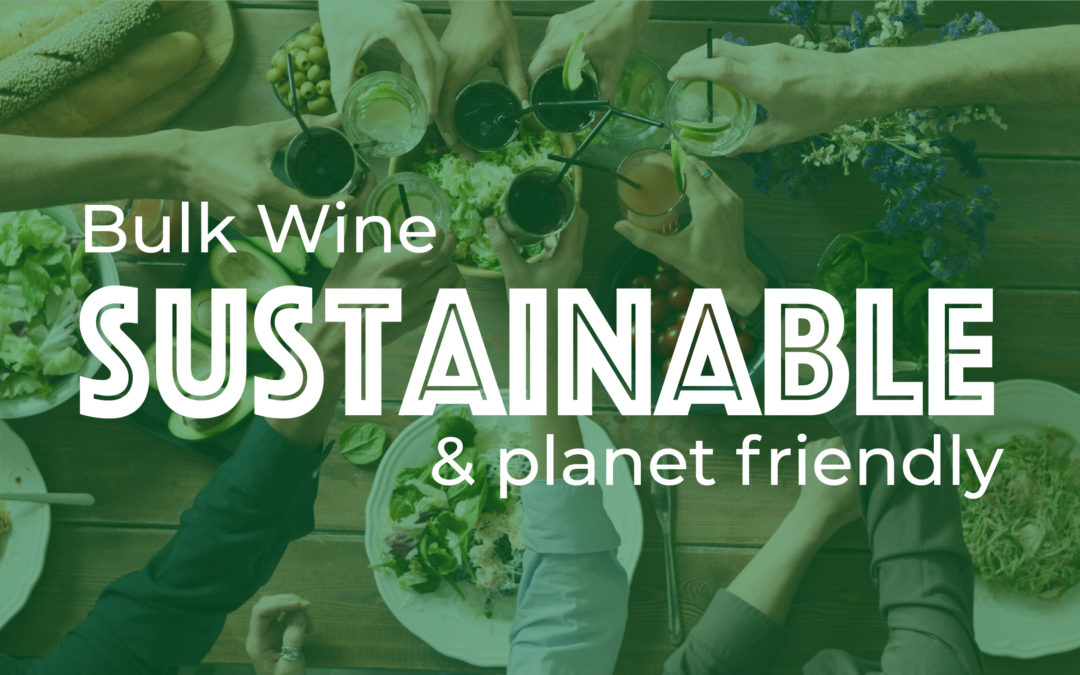A More Sustainable Option from an Environmental Standpoint.
The transportation of large volumes of bulk wine offers significant environmental advantages in terms of weight and volume reduction, lower energy consumption, and reduced waste compared to the transport of bottled wine.
For all of us who work day-to-day in this field, it means a greater impact on our activities, since by the mere fact of working, we are already contributing to the planet! And that feels really good 🙂

We will explore the ecological advantages of this trade modality and analyze its relevance in the current landscape.
- Weight and Volume Reduction: Bulk wine is transported in large quantities in bulk containers, allowing for greater efficiency in terms of weight and volume compared to transporting individual wine bottles. Glass bottles are relatively heavy and bulky, resulting in higher fuel consumption and carbon emissions during transportation.
- Lower Energy Consumption: The transportation of bulk wine in large volumes requires less energy compared to the transport of bottled wine. Bulk containers can transport a greater amount of wine with lower fuel usage, reducing the associated carbon emissions from transportation.

3 – Reduction of Packaging and Waste: Although bulk wine must be bottled at the origin before being commercialized, the fact that it is not individually bottled for transportation significantly reduces the amount of waste generated compared to transporting bottled wine. Additionally, the elimination of packaging during bulk transportation also decreases the energy and resources needed to manufacture, transport, and recycle bottles.
4 – Resource Optimization: Bulk wine transportation promotes resource optimization by more efficiently utilizing the cargo capacity of transport means. This results in a reduction of transport trips and, therefore, a decrease in the carbon footprint related to distribution logistics.

Regarding the current state of bulk wine trade, its relevance continues to grow in a world that increasingly values sustainability and environmental efficiency. The recent Prowein fair made it clear that sustainability is a priority issue for wineries seeking to compete globally, adopting this modality as a strategy to reduce costs and minimize their environmental impact. Furthermore, the increase in environmental awareness among consumers is generating a greater demand for sustainable and organic wines, further driving the bulk wine trade.
In summary, the transportation of large volumes of bulk wine offers significant environmental advantages in terms of weight and volume reduction, lower energy consumption, and reduced waste compared to the transport of bottled wine. This makes it a more sustainable option from an environmental standpoint.
Fuente: Editorial Lost Valley *
Lost Valley Argentina 2024 * April.
